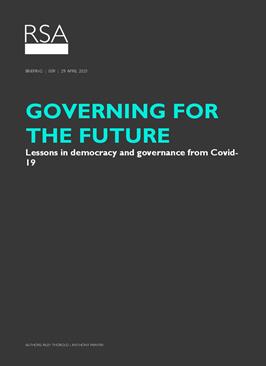In many areas, the UK’s response to the pandemic have been hampered by internal inefficiencies in government. These issues have been exacerbated by scandals and clandestine decision making during the pandemic, reducing public trust in governance in the UK.
Trust and transparency are not the only cause for concern: there has also been an absence of coordination and government systems have lacked the resilience needed to handle systemic challenges. Long-term failures in dealing with inequality and insecurity have also come to a head during the pandemic.
In response, we recommend:
- The government should begin the process of a participatory national conversation on our response to Covid, along the lines of a deliberative assembly.
- The UK government should opt for ‘radical transparency’ wherever possible, taking cues from countries internationally who have adopted similar approaches.
- Measures should further be taken to rein-in lobbying and cronyism, such as tighter restrictions and a lobbying tax, the proceeds of which would go towards enhancing citizen participation in democracy in the UK.
pdf 345.7 KB
Authors


Related articles
-
Notice of the 270th Annual General Meeting
Fellowship news
Notice is hereby given that the 270th AGM of the RSA will be held in The Great Room at RSA House, 8 John Adam Street, London WC2N 6EZ and online on Thursday, 10 October 2024, at 6pm.
-
Loyd Grossman CBE announced as Chair of the Board of Trustees
Fellowship news
Ben Oliver
Loyd Grossman CBE has been appointed Chair of its Board of Trustees at the RSA.
-
RSA announces Loyd Grossman CBE as Chair of the Board of Trustees
Press release
The Royal Society of Arts is delighted to announce that Loyd Grossman CBE has been appointed Chair of its Board of Trustees, effective from the date of the RSA’s AGM on 10 October 2024, where his appointment will be ratified.


